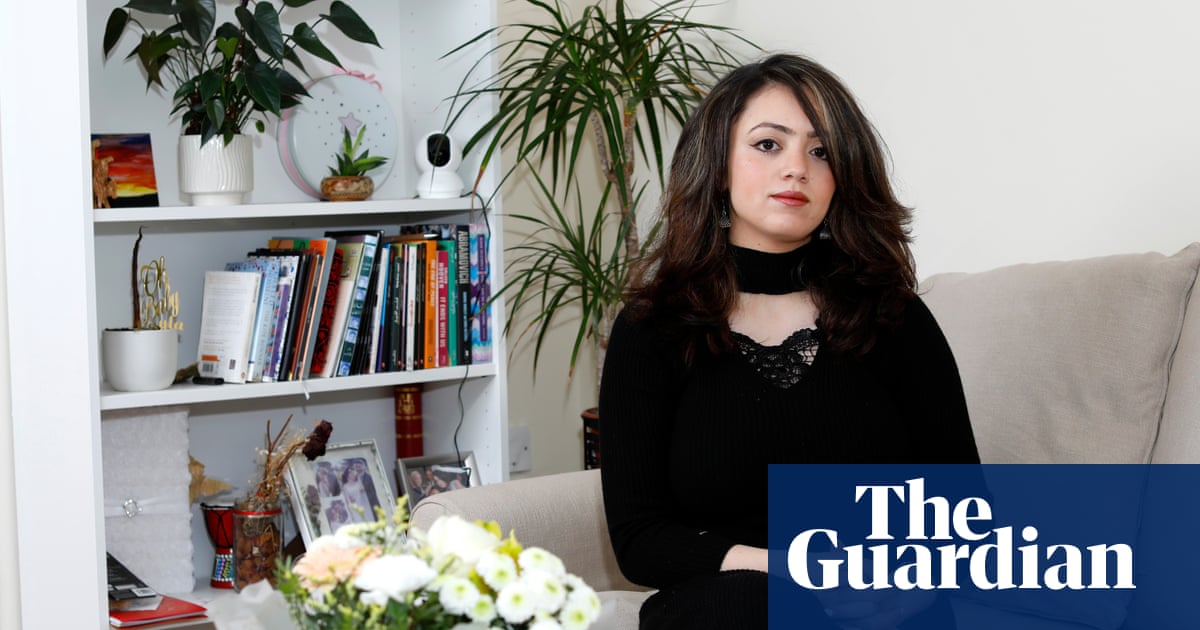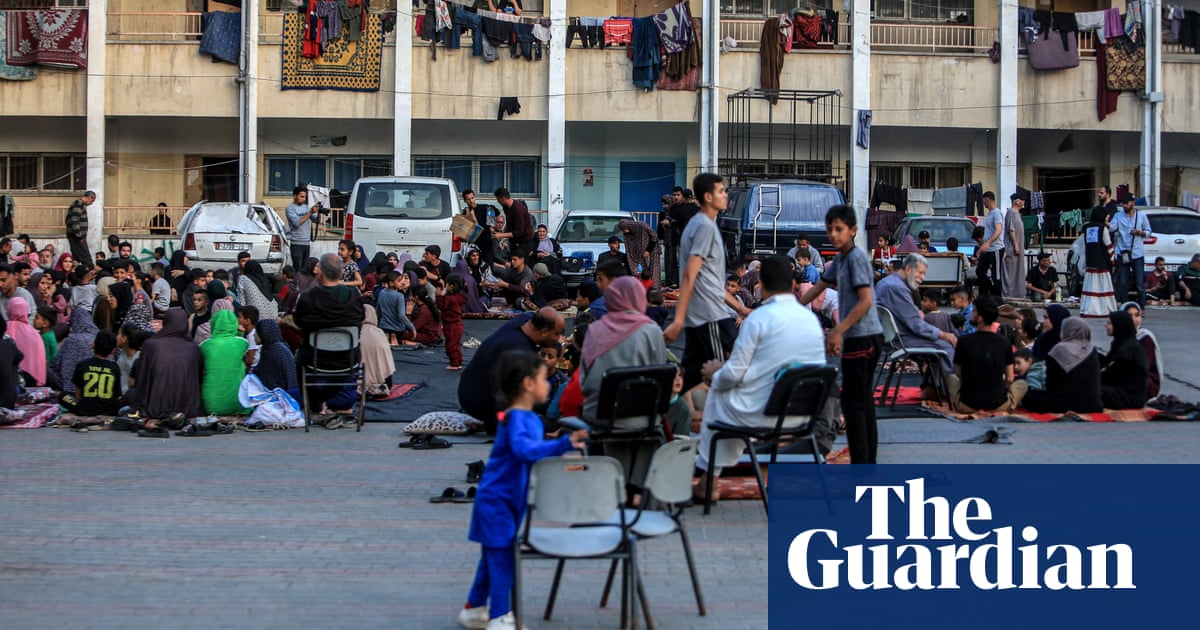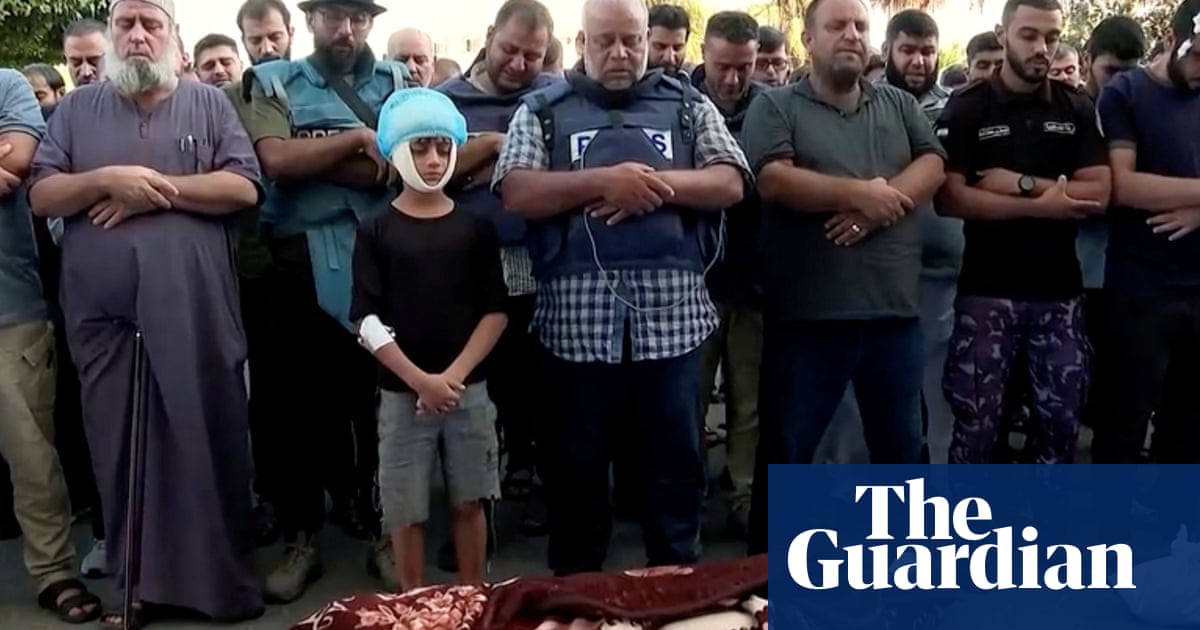
When Hadil Louz heard the news that her family were going to be evacuated from Gaza earlier in March, the relief was immense.
“I was really happy, I screamed in the house shouting how happy I am because it took us a lot of time, effort, stress and uncertainty,” she said. “At the same time, there was a heartache thinking of my other sisters and brother who are still stuck in Gaza with their children.”
Louz, a PhD student at the University of St Andrews, is one of several Palestinians living in the UK who – in the absence of a separate visa scheme – have resorted to fundraising campaigns to secure their family’s evacuation from the besieged strip.
The Hamas raids into Israel on 7 October, which killed more than 1,200 Israelis, mostly civilians, led to a continuing military offensive in Gaza that has so far killed an estimated 32,000 people.
Since the attack, 55,000 donations have been made and 430 funds have been set up in the UK mentioning “evacuate” or “evacuation” in relation to the crisis, according to exclusive figures shared with the Guardian by GoFundMe.
Louz fundraised $25,000 (£20,000) to ensure her mother, three brothers and sister could escape Israeli bombardment via a firm that charges $5,000 (nearly £4,000) for adults to pass via the Rafah border.
The student, who has refugee status in the UK, had attempted to apply for a family visa application but the Home Office refused to consider the request without fingerprints. The Home Office said her family were not at exceptional risk and did not meet the requirements for biometric deferral.
In a letter, the Home Office stated: “I am not satisfied that your clients have demonstrated that they are at personal risk as a result of the conflict and need to make an urgent journey, or that any such journey would be particularly unsafe for them over and above other persons currently living on the territory.”
At the time, Louz said her family were living in a makeshift tent in the south of Gaza, had been displaced four times since 7 October and lacked access to sanitation, medical supplies, food and water. Since the beginning of the war, Gaza’s visa application centre has been closed.
Louz said: “I really felt angry for the double standards that the Home Office used because they opened protection routes for Ukrainian people to come to the UK and for us, they haven’t considered that … they created reasons to justify that my family are not under target and in danger.
“I provided a lot of evidence and nothing convinced the Home Office that my family are under immediate danger. I lost hope with the Home Office offering help in this regard and the second option was to fundraise for my family to bring them to Egypt through a fundraising campaign.”
In early March, an upper tribunal found the home secretary’s refusal to make decisions on the reunion applications of three families who were trapped in Gaza, due to their inability to provide biometrics, was unlawful and breached their rights under article 8 of the European convention on human rights.
Louz’s lawyer Andrew Sirel, of JustRight Scotland, said: “The Home Office taking this position is extremely troubling. It has a policy designed to allow families to get visa decisions without putting their lives at risk to register fingerprints. I can’t think of a clearer example of an unsafe situation than Gaza. How is this family not at ‘personal risk’? Is this not ‘urgent’? It is not humane or logical.”
Sirel said the Home Office’s requirement for fingerprints and photographs for security purposes and establishing identity was, as a general principle, “not objectionable”. “However, where there are exceptional circumstances, such as the violence in Gaza, and the identity of the family has been accepted by the Home Office, as has the UK-based sponsor, there should be some flexibility to save lives,” he said.
Louz, who still has family members in Gaza, said the experience had been “traumatising”. She said: “It was a really difficult situation … I haven’t expected it in my worst nightmares. It’s beyond expectation, beyond imagination, beyond catastrophic.”
Salim Ghayyda, an NHS consultant paediatrician living in Inverness, fundraised more than £20,000 on GoFundMe to enable his parents, sister and nephew to be evacuated via the Rafah border. He has a further 28 family members trapped in Gaza.
He said he did not apply for a visa for his family because the requirements were “so restrictive”, saying he felt “betrayed” by the government and that having to fundraise made him feel like a “lesser human being.”
He said: “I’ve run out of words to describe it. Nothing, no words seem to cut it. I mean, just imagine you’re told your family is being subjected to genocide and you are miles away from them, and there’s nothing you can do to save them. I don’t think any human can ever live with that. And that’s why me and lots of people like me are just so helpless and hopeless.”
A Palestinian refugee living in the UK, who wanted to remain anonymous, said the decision to set up a fundraiser was difficult but they had no other choice.
They said: “It wasn’t an easy decision to go for the fundraiser campaign because we understand the ethical implications of it and how it might be taken away from the support that should be going to the people in Gaza. And I think that there was fear of these campaigns facilitating the forced expulsion of Palestinians. I think there was no option but to think about survival.”
Ghassan Ghaben, coordinator of the Gaza Families Reunited campaign, said the UK government must urgently introduce a Ukraine-style visa scheme, particularly given the looming threat of an offensive in Rafah.
Ghassan Ghaben, coordinator of the Gaza Families Reunited campaign, said the UK government
He said members of the Palestinian community in the UK were “feeling neglected and abandoned” by the government.
Ghaben, whose parents and three siblings are in Rafah, said: “We have been devastated the whole six months, but now we feel like there is no hope at all. We are asking for our families to be with us temporarily, so we can look after them after what’s happened.”
The government said it did not have plans to establish a separate route for Palestinians to come to the UK. A spokesperson said: “We are working around the clock to get British nationals who want to leave out of Gaza. We have a team on the ground in Cairo and at the Rafah crossing providing consular assistance. Any dependents of British citizens who need a visa can apply for one.”
The Home Office said it did not comment on individual cases.
This article was amended on 29 March 2024 to correct the name of the Gaza Families Reunited campaign and Ghassan Ghaben’s role in it.












